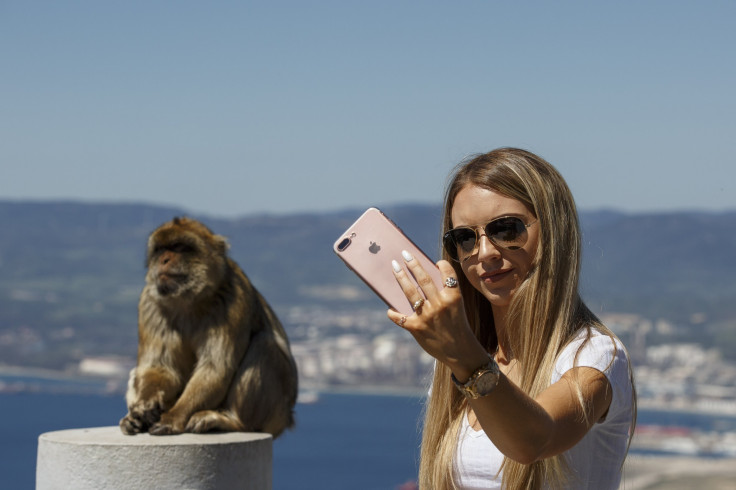PETA's Smiling 'Monkey Selfie' Copyright Lawsuit Creates Appeals Court Circus

The 9th U.S. Circuit Court of Appeals held a three-judge panel hearing Wednesday in San Francisco to hear arguments over whether a smiling monkey selfie is grounds for a copyright infringement case.
Andrew Dhuey, one the attorneys for British nature photographer David Slater, says that the lawsuit from the People for the Ethical Treatment of Animals (PETA) is not a legal issue under any federal jurisdiction in this “monkey see, monkey sue” case. The famed “monkey selfie” was taken by a crested macaque ape named Naruto in 2011 and was tossed out prior to this appeal by U.S. District Judge William H. Orrick III’s January 2016 decision to dismiss PETA’s copyright infringement suit.
If you don't know about the 9th Circuit Court of Appeals' #MonkeySelfie case, you really owe it to yourself to find out. H/T @berkitron pic.twitter.com/IkufHINVDd
— Chad Marlow (@ChadAaronMarlow) July 12, 2017
U.S. Circuit Judge N. Randy Smith said there’s no actual allegation provided by PETA’s lawyers that the ape was harmed by Slater or the San Francisco-based self-publishing company Blurb. The two are being sued over their collaboration to publish the “Wildlife Personalities” book that features animal selfies.
PETA sought a 2015 court order to force Slater and Blurb to give all the book’s proceeds, which were taken in a Sulawesi, Indonesia wildlife reserve, to benefit Naruto.
PETA attorney David Schwarz argued that Naruto was accustomed to cameras and took the pictures of himself after seeing his own reflection in the lens. Circuit Judge Carlos Bea said that one plaintiff, Antje Engelhardt, might have sufficient legal basis to sue on the behalf of Naruto – who is still somewhere in the Indonesia nature preserve, because of a “next-friend” relationship with the ape.
An additional expert primatologist is backing PETA’s appeal and also provided an oral appeal to the three judges on Wednesday.
But Judge Smith maintained that Naruto’s selfie can’t back a legal claim the ape was “injured by the simple infringement of the Copyright Act itself.”
“What's the injury?” Judge Smith asked PETA’s attorney, David Schwarz of Irell & Manella LLP. “There’s no way [for the monkey] to acquire or hold some money, which court would give. There’s no loss to reputation. There’s not even an allegation that the copyright could have benefited somehow Naruto. What financial benefits apply to him? There’s nothing."
Slaters attorneys were incredulous, saying it is “really unfair” they’ve had to fight the case in federal court.
“Naruto can’t benefit from his work,” said Slater attorney, Angela Dunning. “He’s a monkey.”
"It’s not fair to the defendants and it’s a waste of judicial resources that we have to keep arguing what is really an obvious conclusion … that there is no statutory standing here,” Dhuey concurred.
The panel judges -- U.S. Circuit Judges Carlos Bea and N. Randy Smith and U.S. District Judge Eduardo C. Robreno – have taken the arguments under submission.
© Copyright IBTimes 2024. All rights reserved.





















